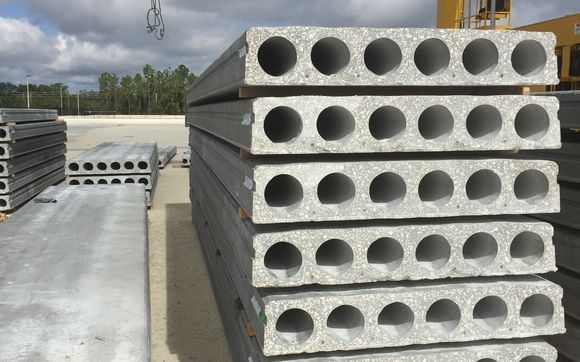
The plumbing codes are a set of rules that govern the plumbing in a building. The United States has different codes. Some jurisdictions have adopted standard codes. The purpose and function of the plumbing code are to ensure that buildings can be safely used and work correctly. The new standards, however, have introduced new requirements for plumbers. This could impact the cost and employment of construction projects.
The International Plumbing Code (IPCC), has been updated
The International Plumbing Code (IPC) is a series of standards for plumbing. It is updated every three years and is vital to the industry of plumbing. The ICC publishes changes proposals well before the new code year. For example, proposals for the 2018 code were submitted in early 2015.
In the process of developing the code, building professionals from around the world work together to make changes. The proposed changes are reviewed by code enforcement officials, design professionals, and industry representatives. This open code development process provides a platform for debate and deliberation.

Needs for local plumbers
Before applying for a license, plumbers must be at least 18 years old. However, someone may be able to get a license sooner if they have completed a CTE program. There are also local licensing requirements which may differ depending on the jurisdiction.
Many states have different licensing requirements for plumbers and contractors. Plumbing professionals must not only meet the state and local licensing requirements but also have to complete training. To obtain an apprentice plumber license, you must complete coursework. All licensed plumbers require continuing education. There are many local licensing agencies that offer programs to help you obtain a license as a plumber and become licensed.
Costs of construction:
All buildings have plumbing, whether they are single-family homes in rural areas or 100-story office towers in densely populated cities. The efficiency of plumbing codes has huge implications for the growth of local, state, and national economies. This study examines how the International Plumbing Code affects the construction industry. It examines the effects of international plumbing codes on construction costs and savings.
While plumbing codes can sometimes create inconveniences for building owners and their tenants, they were originally created to protect public safety. These codes outline the rules and procedures that must be followed during construction. They are also updated regularly to keep up with new technologies.

Employment impact
The International Plumbing Code (IPC) is a set of standards for plumbing installations and maintenance. The code sets standards for how plumbing equipment should be installed and maintained. It also establishes safety and health standards for workers and the general public. It also regulates where and how equipment should be placed.
Plumbing codes require that plumbers use only approved materials and safe techniques. Additionally, they ensure that skilled plumbers are employed. Infractions to plumbing codes could lead to high legal and medical costs or even loss of a building permit.
FAQ
Can I cancel my contracted at any moment?
Yes. But you must do this within 14 calendar days of signing your contract. Your contract can be ended by giving notice in writing up to seven days before the deadline. However, if you don't give enough notice, you may still owe the contractor money for work already carried out.
What is a Service Agreement Template?
A service agreement templates is a template that contains all the details for a particular service agreement. To create a standard agreement, a service agreement template can be used.
Service agreements are vital because they determine the relationship between two individuals.
They assist both parties in understanding each other's needs, and their expectations. They ensure both parties are fully informed about the terms of the agreement before they sign it.
How much does it take to get building permission?
It varies depending on the state and the complexity of your proposal. It will also depend on whether permission is being sought to build or expand your house. You should expect to wait several months before everything is approved.
Is there a limit on the amount I can spend on this project?
No. Your SCA sets an upper limit on the total cost of the project. But, it is possible to negotiate a lower cost with the contractor.
Where can I obtain more information about building permits
Ask your local government office (for instance, NSW Local Government Association), or talk to your real estate agent. They should be able tell you the best way to go about obtaining permission.
Statistics
- Reasonable late fees go up to 25% per year on unpaid sums. (lawdepot.com)
- Depending on the client's trustworthiness and financial stability, a deposit is usually 10 to 50% of the total contract amount. (lawdepot.com)
- (1) Ascertain the extent to that offers are based on the payment of overtime and shift premiums; and (2) Negotiate contract prices or estimated costs without these premiums or obtain the requirement from other sources. (acquisition.gov)
- Don't take their anger personally, they are mad about the situation 99% of the time. (activatemylicense.com)
- (3) The contracting officer may provide for a contract price adjustment based solely on a percentage rate determined by the contracting officer using a published economic indicator incorporated into the solicitation and resulting contract. (acquisition.gov)
External Links
How To
What should a contract of service include?
An SA is a key component of any business relationship. It defines what you want from each other, and how you will get it. The SA also specifies when and where you expect each party to fulfill its contractual obligations.
The following are key elements for a successful SA
-
Both parties will agree to the scope of work.
-
Details of payment terms including start date and end date for delivery of goods/services.
-
An agreed price for the project.
-
Any additional charges, like VAT, etc.
-
Whether there are other topics that require discussion.
-
Who is responsible if the job goes wrong?
-
How disputes will be settled
-
What happens if a party breaches the contract.
-
What happens in the event of a dispute.
-
When does the contract take effect?
-
What happens if one or both of the parties fail to perform.
-
What time do you need to pay your invoices?
-
Who pays for travel costs?
-
Where the money comes.
-
What happens if a client changes his mind?
-
What happens when the supplier doesn’t show up.
-
Who is allowed to access the site during construction
-
What happens if the customer cancels?
-
What happens if the product malfunctions?
-
What happens if the manufacturer refuses parts?
-
What happens if the equipment is damaged?
-
What happens if the project takes more time than anticipated?
-
What happens when the work is not completed within the specified timeframe?
-
What happens if the quality of the finished project falls below expectations?
-
What happens when the cost is too high?
-
What happens when the materials are not delivered in time?
-
What happens when the material arrives damaged.
-
What happens when the products don't meet standards?
-
What happens when the job is cancelled before completion?
-
What happens when the company goes under?